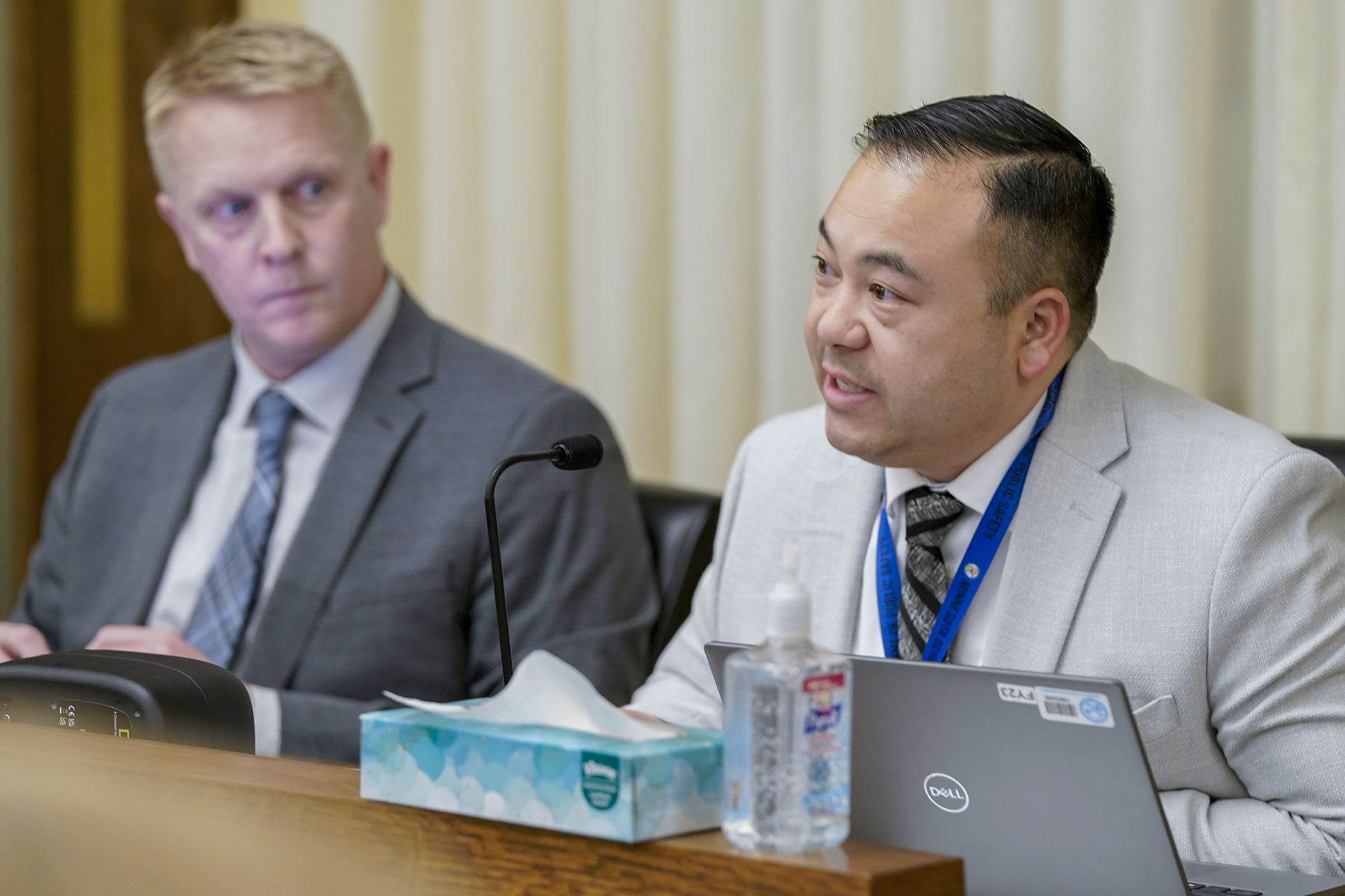House bill proposes earlier driver's test booking, heftier cancellation penalties
If you’ve secured an appointment for a driver’s test in Minnesota, you may feel a sense of accomplishment akin to that of squeezing your vehicle into a particularly tight parking space.
It’s been a common complaint among parents of teenagers that they can’t seem to surmount that final barrier to their kid getting a driver’s license. And, if an appointment opens up on the Department of Vehicle Services’ website, it could take hours to get to the testing location.
Rep. Andrew Myers (R-Tonka Bay) hopes to speed up the queue with HF795. It would set new requirements for available booking of a driver’s road test, stipulating that certain shares of projected appointment slots must be made available between one and three months in advance.
 Pong Xiong, director of the Department of Public Safety’s Driver and Vehicle Services Division, shares concerns about HF795. Sponsored by Rep. Andrew Myers, left, the bill would amend driver’s road testing requirements. (Photo by Michele Jokinen)
Pong Xiong, director of the Department of Public Safety’s Driver and Vehicle Services Division, shares concerns about HF795. Sponsored by Rep. Andrew Myers, left, the bill would amend driver’s road testing requirements. (Photo by Michele Jokinen)And if you don’t show up for a scheduled driver’s exam or cancel within 24 hours beforehand, the bill would increase the current $20 fine to $50. It would remain $20 if you cancel between 24 and 72 hours ahead of your scheduled appointment.
The House Transportation Finance and Policy Committee laid the bill over, as amended, Monday for possible omnibus bill inclusion.
“I think we’ve all heard horror stories back in our districts of parents and younger individuals trying to get appointments from DVS,” Myers said. “What we’re trying to do is just increase those options and opportunities for people to get in there.”
Unsuccessful amendments would have deleted the change in fees for no-shows and cancellations and made certain appointments only available to residents of the county where the exam station is located.
Pong Xiong, director of the Department of Public Safety’s Driver and Vehicle Services Division, expressed concern about the bill. He said 2023 and 2024 state appropriations have allowed his department to hire more examiners, so much so that many open exam appointments remain unfilled.
“Right now, we have over 6,000 appointments available in all 10 regions of the state,” Xiong said. “And there’s no indication that raising the no-show cost would actually change the behavior.”
The Legislative Budget Office estimates the bill would reduce a restricted special revenue fund by $340,000 in the 2026-27 biennium.
Related Articles
Search Session Daily
Advanced Search OptionsPriority Dailies
Speaker Emerita Melissa Hortman, husband killed in attack
By HPIS Staff House Speaker Emerita Melissa Hortman (DFL-Brooklyn Park) and her husband, Mark, were fatally shot in their home early Saturday morning.
Gov. Tim Walz announced the news dur...
House Speaker Emerita Melissa Hortman (DFL-Brooklyn Park) and her husband, Mark, were fatally shot in their home early Saturday morning.
Gov. Tim Walz announced the news dur...
Lawmakers deliver budget bills to governor's desk in one-day special session
By Mike Cook About that talk of needing all 21 hours left in a legislative day to complete a special session?
House members were more than up to the challenge Monday. Beginning at 10 a.m...
About that talk of needing all 21 hours left in a legislative day to complete a special session?
House members were more than up to the challenge Monday. Beginning at 10 a.m...